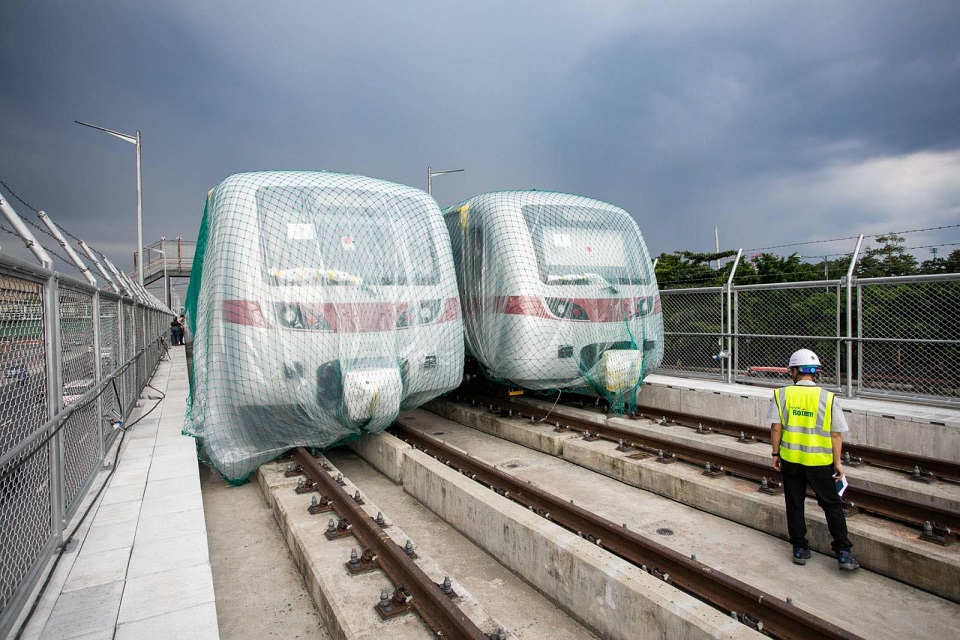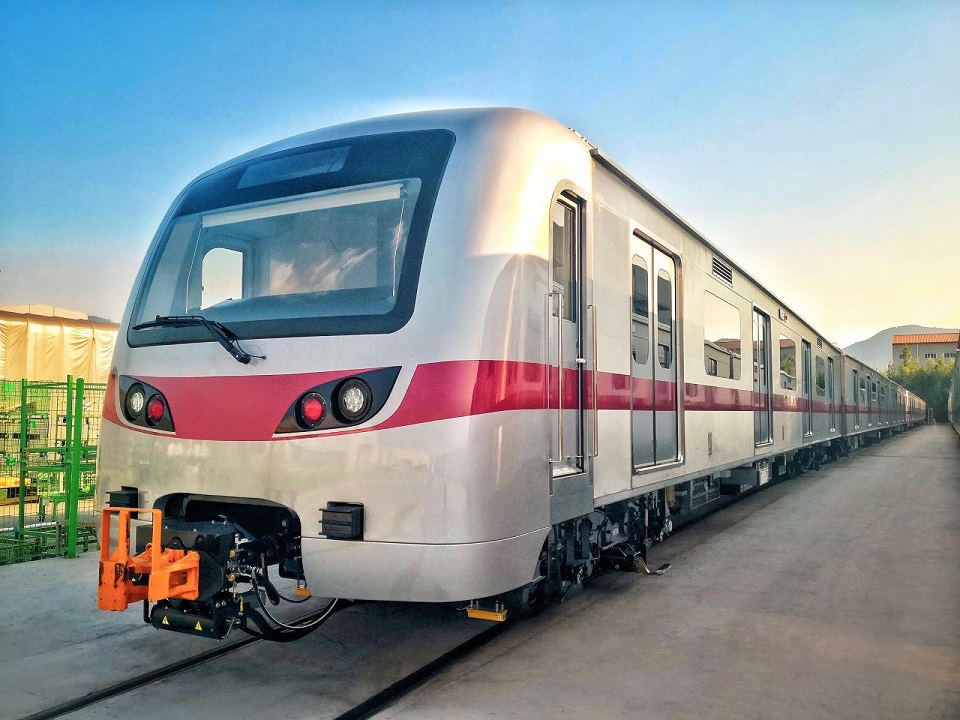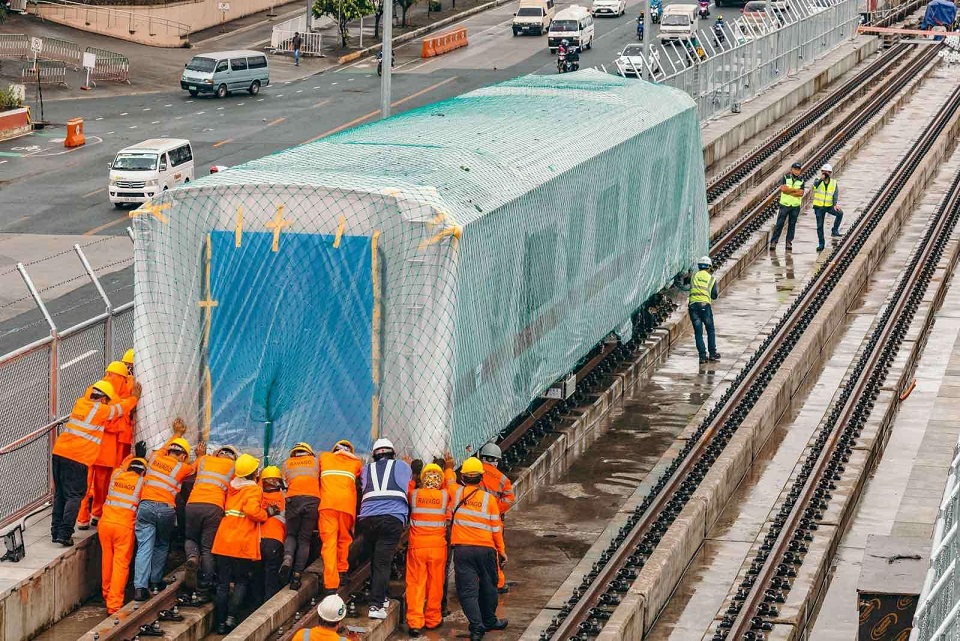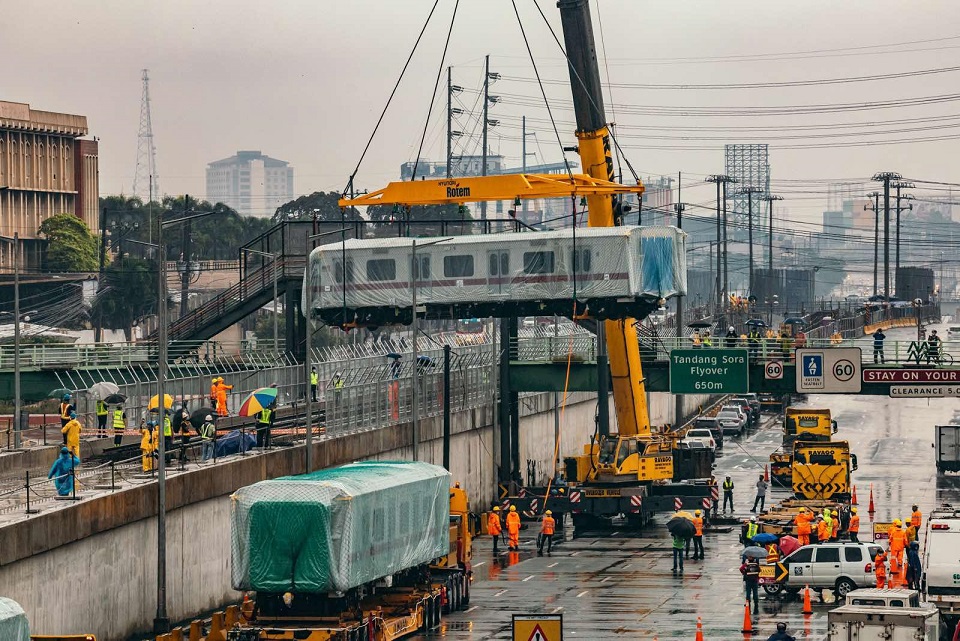San Miguel Corporation (SMC) said its infrastructure arm has already begun construction on a 20-hectare property in San Jose del Monte, Bulacan, that will serve as the main stabling area or train depot of its upcoming Mass Rail Transit 7 (MRT-7) project.
MRT-7 Train Depot in SJDM

The depot, a key element of SMC Infrastructure’s first mass rail project, will have enough capacity to accommodate up to 150 train cars in all. This exceeds the 36 trainsets or 108 rail cars currently set for the project to ensure enough room for future expansion, should the need for more trains based on commuter demand arise.
MRT-7 trains are all made in South Korea by top rail systems provider Hyundai Rotem, which is expected to fully deliver the full complement of 108 MRT-7 train cars to the country by the end of this year.
“This is yet another important milestone reached by our MRT-7 team, who have been diligently working for several years now, even throughout this pandemic, not only to build the physical structure of the rail system but also to overcome the many rights-of-way and property-related challenges faced by a project of this scale,” said SMC president and CEO Ramon S. Ang.
“With the necessary land area for the MRT-7 depot finally complete, we can’t waste any more time; our people are fully committed to delivering this vital project to the public as soon as possible,” he added.

Ang highlighted the significant benefits of the MRT-7 to the public, emphasizing that mass rail and mass transport projects are key to decongesting Metro Manila, easing traffic on public roads, lowering harmful emissions that result from hours of stand-still traffic, boosting productivity, and decentralizing economic growth to benefit also our provinces.
With the start of construction on the depot–which will also house essential facilities dedicated to the maintenance and operations of the trains–Ang said the company estimates it will be ready to support essential operations by the end of 2023.

Currently, And said that project completion for the MRT-7 is estimated at over 60%, with most of the construction work focused on the first 12 of its total 14 stations.
Construction on the last two stations and the train depot had been delayed due to right-of-way issues related to their original sites.
In recent years, the government was able to identify–and deliver–an alternative site for the depot. However, this meant that stations 13 and 14 also had to be realigned along Quirino Highway towards San Jose del Monte, giving rise to further ROW issues that the government and the company are currently working to resolve.
Read Long-awaited MRT 7 to open in December 2022, SMC installs 2nd batch of MRT-7 trains, targets opening by end-2022, and SMC Places First Trainsets on MRT-7 line
MRT-7 Build Build Build Project

The project is owned and managed by the Department of Transportation (DOTr), formerly known as the Department of Transportation and Communication (DOTC).
The Metro Rail Transit Line 7 (MRT-7) project involves the financing, design, construction, operation & maintenance of the 23-kilometer elevated railway line with 14 stations from San Jose Del Monte, Bulacan, to MRT 3 North Avenue in Quezon City and the 22-kilometer asphalt road from Bocaue Interchange of the North Luzon Expressway (NLEX) to the intermodal terminal in Tala. The road component will divert northern provincial buses operation to San Jose Del Monte, thereby decongesting EDSA.
The project was developed through a Public-Private Partnership (PPP). The private concessionaire Universal LRT Corporation BVI Limited, a San Miguel Corporation (SMC) subsidiary, won the bidding. The 25-year concession agreement was signed between the Republic of Philippines (ROP) through the Department of Transportation and the BVI in 2016 under the Build-Gradual-Transfer-Operate, Maintain and Manage (BGTOM) scheme.